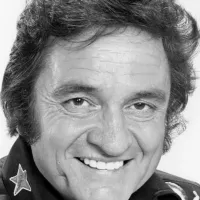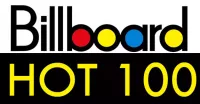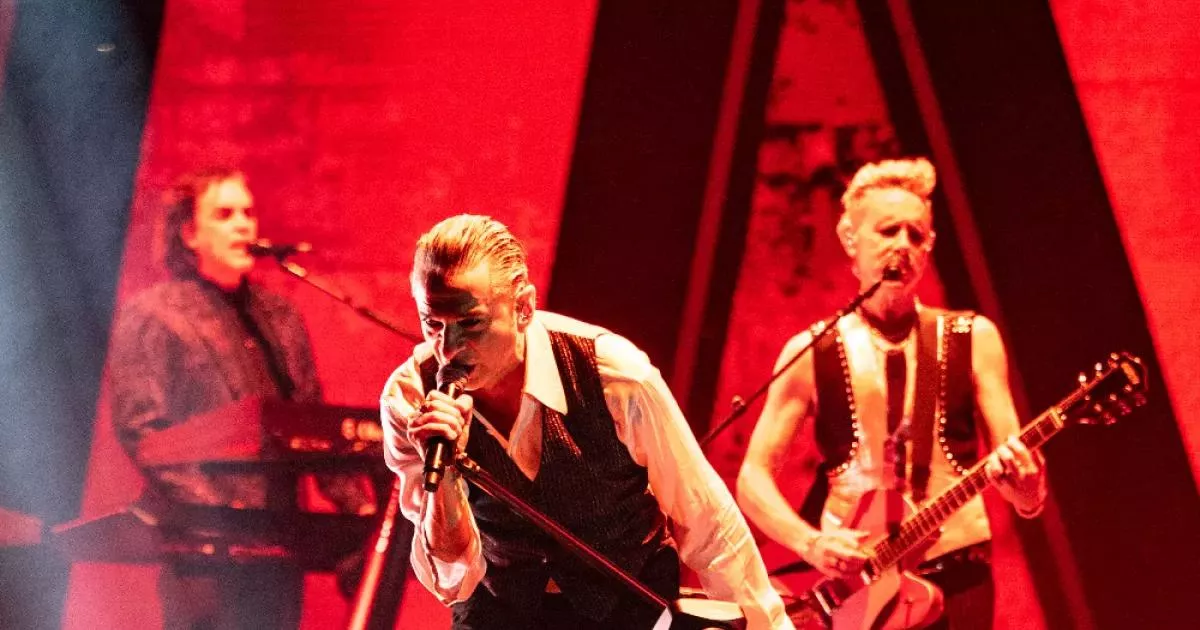Depeche Mode is an English electronic music band formed in 1980 in Basildon, Essex. Initially consisting of Dave Gahan, Martin Gore, Andy Fletcher, and Vince Clarke, the band currently comprises Gahan and Gore. They are known for their pioneering synth-pop sound and have achieved significant commercial success and critical acclaim throughout their career.
1977: Formation of No Romance in China
In 1977, Vince Clarke and Andy Fletcher formed a band called No Romance in China.
1978: Gore plays in Norman and the Worms
In 1978, Martin Gore played guitar in an acoustic duo, Norman and the Worms.
1979: Clarke plays in The Plan
In 1979, Vince Clarke played guitar in an Ultravox-influenced band called the Plan.
June 1980: First Concert as a Four-Piece
On June 14, 1980, Composition of Sound, as a four-piece, performed their first live concert at Nicholas School in Basildon, England.
September 1980: Name Change to Depeche Mode
On September 24, 1980, at Bridge House, the band changed their name to Depeche Mode.
December 1980: Recording of "Dreaming of Me"
In December 1980, Depeche Mode recorded their first single, "Dreaming of Me".
1980: Depeche Mode Formation
In 1980, Depeche Mode was formed in Basildon, Essex, originally with the lineup of Dave Gahan, Martin Gore, Andy Fletcher, and Vince Clarke.
1980: Formation of Composition of Sound and Gahan Joins
In 1980, Vince Clarke and Andy Fletcher formed Composition of Sound, later joined by Martin Gore. Dave Gahan joined later in 1980 after Clarke heard him perform.
1980: Recording Debut
In late 1980, Depeche Mode made their recording debut for the Some Bizzare Album with the song "Photographic".
February 1981: Release of "Dreaming of Me"
In February 1981, Depeche Mode released their first single, "Dreaming of Me".
October 1981: Speak & Spell Album Release
In October 1981, Depeche Mode released their debut album, Speak & Spell.
November 1981: Clarke Announces Departure
In November 1981, Vince Clarke publicly announced that he was leaving Depeche Mode.
1981: Debut Album Release and Clarke's Departure
In 1981, Depeche Mode released their debut album Speak & Spell amidst the British new wave scene. Also in 1981, Vince Clarke left the band to form Yazoo and later Erasure.
1981: Some Bizzare Album Release
In 1981, The Some Bizzare Album was released, featuring Depeche Mode's song "Photographic".
January 1982: Release of "See You"
In January 1982, Depeche Mode released "See You", their first single without Vince Clarke.
July 1982: Work Commences on Second Album
In July 1982, Depeche Mode began work on their second studio album, A Broken Frame.
1982: Second Album Release
In 1982, Depeche Mode, as a trio, recorded their second album, A Broken Frame, with Martin Gore as the chief songwriter.
1982: Alan Wilder Hired
In early 1982, Alan Wilder was hired by Depeche Mode as a touring member.
January 1983: Release of "Get the Balance Right!"
In January 1983, Depeche Mode released "Get the Balance Right!", the first track recorded with Alan Wilder.
September 1983: European Concert Tour
In September 1983, Depeche Mode launched a European concert tour to promote Construction Time Again.
March 1984: Release of "People Are People"
In March 1984, Depeche Mode released the single "People Are People", which became a hit in Europe.
September 1984: Release of Some Great Reward
In September 1984, Depeche Mode released their album Some Great Reward.
1984: The World We Live In and Live in Hamburg Video Release
In 1984, Depeche Mode released The World We Live In and Live in Hamburg, their first video release.
July 1985: First Concerts Behind the Iron Curtain
In July 1985, Depeche Mode played their first concerts behind the Iron Curtain, in Budapest and Warsaw.
October 1985: Release of The Singles 81→85
In October 1985, Mute released a compilation album, The Singles 81→85, which included the new singles "Shake the Disease" and "It's Called a Heart".
1985: "People Are People" Reaches US Charts
In mid-1985, "People Are People" reached No. 13 on the US charts, marking Depeche Mode's first appearance on the Billboard Hot 100.
1986: Release of "Stripped" and Black Celebration
In 1986, Depeche Mode released "Stripped" and the album Black Celebration, marking a shift in their musical style with a darker, more atmospheric sound.
1986: Release of Black Celebration
In 1986, Depeche Mode released Black Celebration, cementing their place in the electronic and alternative music scene.
1986: Black Celebration Album
In 1986, Depeche Mode released the album Black Celebration, which significantly influenced artists like Trent Reznor of Nine Inch Nails.
October 1987: Music for the Masses Tour Begins
In October 1987, Depeche Mode's Music for the Masses Tour began.
1987: Music for the Masses Album Release
In 1987, Depeche Mode released "Music for the Masses", their sound continued to develop. The band worked with Dave Bascombe, and while the singles' chart performance in the UK was disappointing, they performed well internationally. Record Mirror described the album as "the most accomplished and sexy Mode album to date."
March 1988: Depeche Mode Performs in East Berlin
In March 1988, Depeche Mode played in East Berlin's Werner-Seelenbinder-Halle, becoming one of the few Western groups to perform in East Germany.
June 1988: Pasadena Rose Bowl Concert
In June 1988, Depeche Mode held a concert at the Pasadena Rose Bowl, drawing a crowd of over 60,000 people.
June 1988: Final Concert at Pasadena Rose Bowl
On June 18, 1988, Depeche Mode concluded their world tour with a concert at the Pasadena Rose Bowl. The concert had a high attendance and marked a breakthrough for the band in the United States.
September 1988: MTV Video Music Awards Performance
On September 7, 1988, Depeche Mode performed "Strangelove" at the MTV Video Music Awards in Los Angeles.
1988: Billboard Alternative Airplay Chart Debut
Since the debut of the Billboard Alternative Airplay chart in 1988, Depeche Mode has charted at least once in every decade.
1989: "Personal Jesus" Single Recording and Marketing Campaign
In mid-1989, Depeche Mode began recording in Milan, resulting in the single "Personal Jesus". A marketing campaign was launched with ads in UK newspapers, which helped propel the single to number 13 on the UK charts. In the US, it became their first gold single.
February 1990: "Enjoy the Silence" Release
In February 1990, Depeche Mode released "Enjoy the Silence", which reached number six in the UK. The song would later reach number eight in the US and earned the band a second gold record.
1990: Release of Violator
In 1990, Depeche Mode released their seventh album, Violator, which reached number seven on the Billboard 200 and achieved triple platinum certification by the RIAA.
1991: Brit Awards Win
In 1991, "Enjoy the Silence" won Best British Single at the Brit Awards.
1991: Contribution to "Until the End of the World" Soundtrack
In 1991, Depeche Mode's song "Death's Door" was released on the soundtrack album for the film "Until the End of the World".
February 1992: Band Regroups in Madrid
In February 1992, the members of Depeche Mode regrouped in Madrid. During this time, Dave Gahan became interested in the grunge scene, influenced by bands like Jane's Addiction and Nirvana.
December 1993: "Songs of Faith and Devotion Live" Album Release
In December 1993, Depeche Mode released their second live album, "Songs of Faith and Devotion Live".
1993: "Songs of Faith and Devotion" Album Release
In 1993, Depeche Mode released "Songs of Faith and Devotion", experimenting with electric guitars and live drums alongside synthesisers. The album debuted at number one in both the UK and the US.
1993: Release of Songs of Faith and Devotion
In 1993, Depeche Mode released Songs of Faith and Devotion, which was successful despite internal struggles within the band.
1993: Devotional Tour Described as Debauched
In 1993, Q magazine described the Devotional Tour as "The Most Debauched Rock 'n' Roll Tour Ever", citing Dave Gahan's cortisone shots, Martin Gore's stress-induced seizures, and Andrew Fletcher's deepening depression.
February 1994: Exotic Tour Begins
In February 1994, Depeche Mode's Exotic Tour began in South Africa.
1994: Gore Arrested and Fletcher's Breakdown
In 1994, Martin Gore was arrested and fined for disturbing the peace during a loud party. Andrew Fletcher experienced a nervous breakdown and was replaced on stage by Daryl Bamonte for the second half of the Exotic Tour.
June 1995: Alan Wilder Announces Departure
In June 1995, Alan Wilder announced his departure from Depeche Mode.
1995: Wilder's Departure
In 1995, Alan Wilder departed from Depeche Mode due to the band's internal struggles.
1995: Grammy Nomination for "Devotional" Film
In 1995, Depeche Mode earned their first Grammy nomination for the "Devotional" concert film.
1996: Gahan's Rehab and Recording Sessions
In 1996, following a near-fatal overdose, Dave Gahan entered a court-ordered drug rehabilitation program. After rehab, Depeche Mode held recording sessions with producer Tim Simenon.
April 1997: "Ultra" Album Release
In April 1997, Depeche Mode released the album "Ultra", which debuted at No. 1 in the UK and Germany, and No. 5 in the US. The band did not tour in support of the album but performed two short concerts.
1997: Release of Ultra
In 1997, Depeche Mode, as a trio, released the album Ultra.
April 1998: Singles Tour Announcement
In April 1998, Depeche Mode held a press conference to announce the Singles Tour. The tour featured two backing musicians in place of Alan Wilder.
March 2001: Exciter Tour Announcement
In March 2001, Depeche Mode announced the Exciter Tour at a press conference in Hamburg.
2001: "Exciter" Album Release
In 2001, Depeche Mode released the album "Exciter", produced by Mark Bell, featuring a minimalist, digital sound. Critical response was mixed.
2001: Release of Exciter
In 2001, Depeche Mode released the album Exciter as a trio.
May 2002: "One Night in Paris" DVD Release
In May 2002, Depeche Mode released the live DVD "One Night in Paris", filmed during concerts held in Paris.
October 2002: Q Magazine Innovation Award
In October 2002, Depeche Mode won the first-ever Q magazine "Innovation Award".
2002: Release of Singles from Exciter
In 2002, Depeche Mode continued releasing singles from the album "Exciter", including "I Feel Loved", "Freelove", and "Goodnight Lovers".
2003: Solo Albums and Label Launch
In 2003, Dave Gahan released his first solo album, "Paper Monsters", and toured to promote it. Martin Gore released his second solo album, "Counterfeit²", and Andrew Fletcher founded his own record label, Toast Hawaii.
2004: "Remixes 81-04" Album Release
In 2004, Depeche Mode released a remix compilation album, "Remixes 81–04", featuring new and unreleased promo mixes of the band's singles from 1981 to 2004.
October 2005: "Playing the Angel" Album Release
In October 2005, Depeche Mode released their 11th studio album, "Playing the Angel", which peaked at No. 1 in 18 countries and featured the hit single "Precious". This album marked the first time since 1984 that Gahan contributed lyrics.
November 2005: Touring the Angel Begins
In November 2005, Depeche Mode launched "Touring the Angel" to promote "Playing the Angel", with the tour lasting nine months.
2005: Release of Playing the Angel
In 2005, Depeche Mode released the album Playing the Angel as a trio.
November 2006: "The Best of Depeche Mode Volume 1" Release and MTV Award
In November 2006, Depeche Mode released "The Best of Depeche Mode Volume 1" featuring the new single "Martyr". Later that month, they received the MTV Europe Music Award in the Best Group category.
December 2006: "The Complete Depeche Mode" Digital Box Set
In December 2006, iTunes released "The Complete Depeche Mode" as a digital box-set.
2006: Touring the Angel Continues
In 2006, Depeche Mode continued "Touring the Angel", headlining festivals and playing to more than 2.8 million people. The tour was critically acclaimed and one of the highest grossing of the period.
2006: Sasha Frere-Jones Praises Depeche Mode
In 2006, music critic Sasha Frere-Jones stated that Depeche Mode was "the last serious English influence."
August 2007: Announcement of New Album
In August 2007, it was announced that Depeche Mode would return to the studio in early 2008 to work on a new album.
May 2008: Band returns to studio
In May 2008, Depeche Mode returned to the studio with producer Ben Hillier to begin working on new songs written by Martin Gore.
October 2008: Tour of the Universe Announcement
In October 2008, Depeche Mode announced their upcoming 'Tour of the Universe' at a press conference held at the Olympiastadion in Berlin.
January 2009: Sounds of the Universe Album Announcement
On January 15, 2009, Depeche Mode announced their twelfth studio album would be titled 'Sounds of the Universe'.
February 2009: "Wrong" Single Release
In February 2009, "Wrong" was released digitally as the first single from the album 'Sounds of the Universe'.
April 2009: Sounds of the Universe Album Release
On April 14, 2009, Depeche Mode released their album 'Sounds of the Universe', which reached number one in 21 countries and was later nominated for a Grammy.
April 2009: Jimmy Kimmel Live! Performance
On April 23, 2009, Depeche Mode performed on Jimmy Kimmel Live! in Hollywood, drawing a record audience for the show.
May 2009: Tour of the Universe Launch
In May 2009, Depeche Mode began their 'Tour of the Universe' in support of their album. The tour started on May 10, 2009, in Tel Aviv.
2009: Depeche Mode in Left 4 Dead 2
In 2009, Depeche Mode allowed their likeness to be used in Valve's Left 4 Dead 2, marking an appearance in the gaming world.
2009: Release of Sounds of the Universe
In 2009, Depeche Mode released the album Sounds of the Universe as a trio.
2009: Jim Kerr Praises Depeche Mode
In a 2009 interview, Simple Minds' Jim Kerr said Depeche Mode and U2 were the only contemporaries of his band to have "stayed constantly relevant".
March 2010: Echo Award for Best International Group
In March 2010, Depeche Mode won the award for "Best International Group – Rock / Pop" at the Echo Awards in Germany.
2010: Charity Support
Since 2010, Depeche Mode has been actively involved in supporting various charities, including MusiCares, Cancer Research UK, and the Teenage Cancer Trust.
May 2011: "Personal Jesus 2011" Single Release
On May 30, 2011, "Personal Jesus 2011", a remix by Stargate, was released as a single in support of the 'Remixes 2: 81-11' compilation.
June 2011: Remixes 2: 81-11 Release
In June 2011, Depeche Mode released the remix compilation album 'Remixes 2: 81–11' featuring remixes by former and contemporary artists.
December 2011: Contribution to U2 Tribute Album
In December 2011, Depeche Mode's cover of U2's "So Cruel" was included in the tribute album 'AHK-toong BAY-bi Covered' celebrating the 20th anniversary of U2's Achtung Baby album.
October 2012: New Album and Tour Plans Announced
In October 2012, Depeche Mode announced plans for a new album and a worldwide tour starting in 2013 during a press conference in Paris.
December 2012: Signing with Columbia Records
In December 2012, Depeche Mode officially announced signing a worldwide deal with Columbia Records and plans to release a new album in March 2013.
January 2013: Delta Machine Album Title Confirmed
On January 24, 2013, Depeche Mode confirmed that their new album would be titled 'Delta Machine'.
February 2013: "Heaven" Single Release
On February 1, 2013, Depeche Mode released "Heaven", the debut single from 'Delta Machine'.
March 2013: Delta Machine Album Release
Depeche Mode released 'Delta Machine' in March 2013, marking their first album with Columbia Records.
2013: Release of Delta Machine
In 2013, Depeche Mode released the album Delta Machine as a trio.
October 2014: Live in Berlin Announcement
On October 8, 2014, Depeche Mode announced the release of 'Live in Berlin', a video and audio recording from their Delta Machine Tour, filmed in November 2013.
November 2014: Live in Berlin Release
On November 17, 2014, Depeche Mode's 'Live in Berlin' was released worldwide, capturing their performance during the Delta Machine Tour from November 2013.
2014: Moscow Gala and Fundraiser
In 2014, Depeche Mode and Hublot hosted a gala and fundraiser in Moscow at the TsUM building, raising $1.4 million for Charity: Water.
2015: Gore praises Johnny Cash cover
In 2015, Martin Gore stated that Johnny Cash's cover of "Personal Jesus" is his favorite cover version of a Depeche Mode song.
January 2016: Return to Recording Studio Announced
On January 25, 2016, Martin Gore announced plans to return to the recording studio in April, with new songs already written and demoed.
October 2016: Spirit Album Title Announced
In October 2016, Depeche Mode announced that their fourteenth album would be titled 'Spirit', produced by James Ford.
2016: Billboard's Top Dance Club Artists
In 2016, Billboard named Depeche Mode the 10th Greatest of All Time Top Dance Club Artists.
February 2017: "Where's the Revolution" Single Release
On February 3, 2017, Depeche Mode released "Where's the Revolution", the lead single from their album 'Spirit'.
March 2017: Spirit Album Release
Depeche Mode's fourteenth studio album "Spirit" was released on March 17, 2017.
May 2017: Global Spirit Tour Kicks Off
On May 5, 2017, Depeche Mode's Global Spirit Tour officially began in Stockholm, Sweden.
2017: Hublot Big Bang Depeche Mode Watch Release
In 2017, Depeche Mode partnered with Hublot to release the Hublot Big Bang Depeche Mode watch, a limited edition watch to support Charity: Water.
2017: Release of Spirit
In 2017, Depeche Mode released the album Spirit as a trio.
July 2018: Global Spirit Tour Concludes
In July 2018, Depeche Mode ended the Global Spirit Tour with two sold-out shows in Berlin, Germany on July 23 and 25.
2018: The Singles Limited Edition Series
In 2018, Depeche Mode released The Singles Limited Edition series based on the Big Bang model in partnership with Hublot, raising funds for Charity: Water.
September 2019: Spirits in the Forest Documentary Announced
In September 2019, Depeche Mode announced that 'Spirits in the Forest', a documentary filmed during their Global Spirit Tour, would be released in theaters for one night on November 21, 2019.
November 2019: Spirits in the Forest Theatrical Release
On November 21, 2019, Depeche Mode's "Spirits in the Forest", a documentary, was released in theaters for one night only.
June 2020: LiVE SPiRiTS Release
On June 26, 2020, "LiVE SPiRiTS", the CD, DVD and Blu-ray release of the documentary 'Spirits in the Forest', was released.
November 2020: Induction into Rock and Roll Hall of Fame
On November 7, 2020, Depeche Mode were inducted into the Rock and Roll Hall of Fame.
2020: Work on Memento Mori Begins
In 2020, Depeche Mode began working on the album 'Memento Mori' during the COVID-19 pandemic.
2020: Rock and Roll Hall of Fame Induction
In 2020, Depeche Mode was inducted into the Rock and Roll Hall of Fame.
May 2022: Death of Andy Fletcher
On May 26, 2022, Andy Fletcher, a founding member of Depeche Mode, died at the age of 60 due to an aortic dissection.
August 2022: Hint of New Studio Album
On August 15, 2022, Depeche Mode hinted at work on a new studio album with a post on social media showing Gahan and Gore in a recording studio.
October 2022: Memento Mori Album and Tour Announcement
On October 4, 2022, Depeche Mode announced their fifteenth studio album, 'Memento Mori', and an upcoming tour.
2022: Fletcher's Death
In 2022, Andy Fletcher passed away, leaving Gahan and Gore as a duo.
February 2023: "Ghosts Again" Release
On February 9, 2023, Depeche Mode released "Ghosts Again", the first single from the album 'Memento Mori'.
March 2023: Memento Mori Tour Start
On March 23, 2023, Depeche Mode began their tour to support the album "Memento Mori".
December 13, 2023: "Depeche Mode Day" in Los Angeles
On December 13, 2023, Los Angeles city council member Monica Rodriguez, officially declared December 13th as "Depeche Mode Day" in the city of Los Angeles.
2023: Release of Memento Mori
In 2023, Gahan and Gore released Memento Mori as a duo.
Mentioned in this timeline

Johnny Cash the Man in Black was a highly influential...

The Billboard Hot is the primary music chart in the...
Germany officially the Federal Republic of Germany is a nation...
China officially the People's Republic of China is an East...
Africa is the second-largest and second-most populous continent comprising of...

Los Angeles is the most populous city in California and...
Trending

19 minutes ago Civil Rights Icon Jesse Jackson Passes Away at 84: A Legacy Remembered

1 day ago Democrats and Europe grapple with Trump's impact; Newsom says Trump unified Europe.

19 minutes ago Elise Mertens faces Emma Navarro in WTA Dubai 2026; Predictions and Odds

1 day ago Iva Jovic Inspired by Djokovic, Competes in WTA Dubai, Faces Anisimova.

1 hour ago Magda Linette Advances to WTA Dubaj Round 2, Fr?ch Eliminated, Other Final Matches

1 hour ago Clara Tauson vs. Peyton Stearns: WTA Dubai 2026 Match Prediction and Preview
Popular
Randall Adam Fine is an American politician a Republican who...

Pam Bondi is an American attorney lobbyist and politician currently...

Kid Rock born Robert James Ritchie is an American musician...

Barack Obama the th U S President - was the...
The Winter Olympic Games a major international multi-sport event held...

XXXTentacion born Jahseh Dwayne Ricardo Onfroy was a controversial yet...
